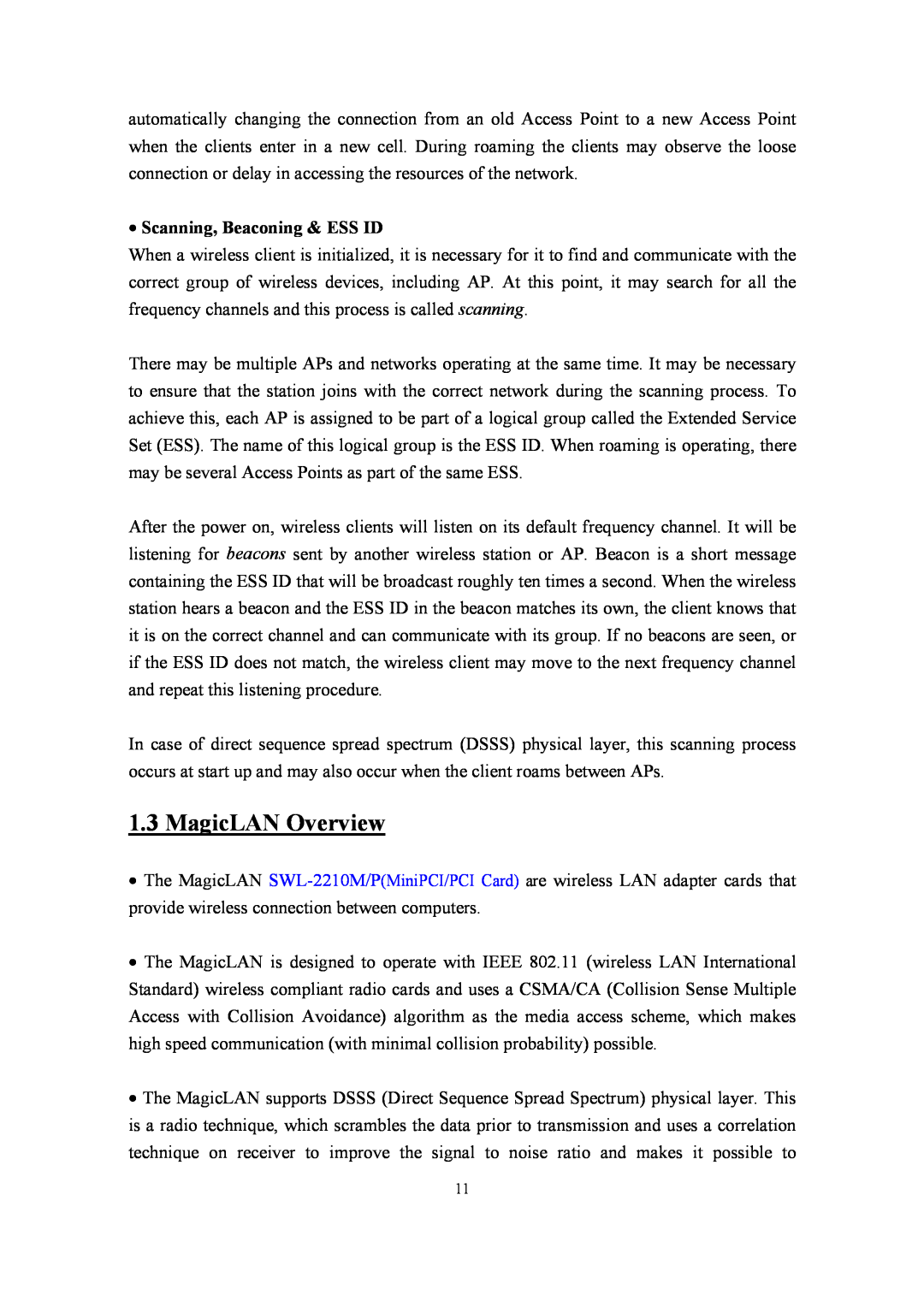automatically changing the connection from an old Access Point to a new Access Point when the clients enter in a new cell. During roaming the clients may observe the loose connection or delay in accessing the resources of the network.
•Scanning, Beaconing & ESS ID
When a wireless client is initialized, it is necessary for it to find and communicate with the correct group of wireless devices, including AP. At this point, it may search for all the frequency channels and this process is called scanning.
There may be multiple APs and networks operating at the same time. It may be necessary to ensure that the station joins with the correct network during the scanning process. To achieve this, each AP is assigned to be part of a logical group called the Extended Service Set (ESS). The name of this logical group is the ESS ID. When roaming is operating, there may be several Access Points as part of the same ESS.
After the power on, wireless clients will listen on its default frequency channel. It will be listening for beacons sent by another wireless station or AP. Beacon is a short message containing the ESS ID that will be broadcast roughly ten times a second. When the wireless station hears a beacon and the ESS ID in the beacon matches its own, the client knows that it is on the correct channel and can communicate with its group. If no beacons are seen, or if the ESS ID does not match, the wireless client may move to the next frequency channel and repeat this listening procedure.
In case of direct sequence spread spectrum (DSSS) physical layer, this scanning process occurs at start up and may also occur when the client roams between APs.
1.3 MagicLAN Overview
•The MagicLAN
•The MagicLAN is designed to operate with IEEE 802.11 (wireless LAN International Standard) wireless compliant radio cards and uses a CSMA/CA (Collision Sense Multiple Access with Collision Avoidance) algorithm as the media access scheme, which makes high speed communication (with minimal collision probability) possible.
•The MagicLAN supports DSSS (Direct Sequence Spread Spectrum) physical layer. This is a radio technique, which scrambles the data prior to transmission and uses a correlation technique on receiver to improve the signal to noise ratio and makes it possible to
11
